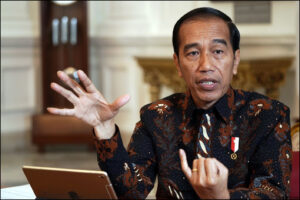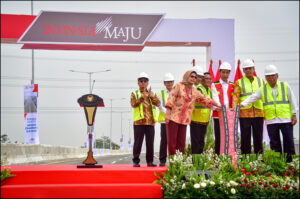View Point: The Danger of Jokowi’s Charisma
As the charismatic leader of Indonesia, Joko Widodo, commonly known as Jokowi, continues to gain admiration and support from the public, it is crucial to analyze the potential dangers associated with his charismatic appeal. While charisma can be a powerful tool for a political leader, if not managed properly or used ethically, it can lead to unfavorable outcomes. This article delves into the various aspects of Jokowi’s charisma and highlights the possible dangers that may arise from it.
The Allure of Charisma
Charisma is a captivating quality possessed by certain individuals that enables them to inspire and influence others effortlessly. It often masks their flaws or shortcomings and creates an aura of trust and admiration around them. Jokowi’s charismatic persona has undoubtedly played a significant role in his rise to power and his ability to connect with the Indonesian population.
Jokowi’s humble beginnings as a furniture exporter turned successful mayor of Surakarta (Solo) resonated with many Indonesians who saw him as an embodiment of their aspirations for an inclusive and corruption-free government. His down-to-earth demeanor, approachable nature, and willingness to listen to ordinary citizens have further endeared him to the public.
The Danger Beneath
An Overreliance on Personality
One of the potential dangers associated with Jokowi’s charisma is an overreliance on his personality rather than focusing on concrete policies and effective governance. Charismatic leaders often rely on their charm and personal appeal instead of presenting well-thought-out plans or comprehensive strategies for solving pressing issues. While this may initially win over supporters, it can lead to a lack of substantial progress in addressing crucial challenges facing Indonesia.
In addition, Jokowi’s charisma can be a double-edged sword, creating an environment where dissenting voices and critical analysis of his decisions are stifled. The overwhelming adoration from his supporters may inhibit constructive feedback, resulting in echo chambers that hinder the development of robust policies. It is essential to strike a balance between charisma and tangible achievements to ensure sustainable progress for the nation.
Potential for Populism
Charismatic leaders are often susceptible to populism—a political approach that prioritizes popular appeal over sound policies. While Jokowi has managed to maintain a relatively balanced stance during his presidency, there is always the risk of succumbing to populism under the influence of his charismatic persona.
Populist decisions driven by short-term gains rather than long-term stability and development could jeopardize Indonesia’s economic growth and democratic institutions. The allure of popularity may lead Jokowi to make decisions that resonate with public sentiment but lack thorough analysis or consideration of potential ramifications.
In this regard, it is crucial for citizens and institutions to remain vigilant in holding Jokowi accountable for his actions, ensuring that he remains committed to fair governance and evidence-based decision-making.
Managing Charisma Responsibly
The need for an effective support system
A charismatic leader like Jokowi requires a strong support system composed of capable individuals who can provide diverse perspectives and challenge ingrained ideas. By surrounding himself with qualified advisors and experts from various fields, Jokowi can avoid the pitfalls of groupthink and make well-informed decisions that benefit all Indonesians.
Furthermore, establishing mechanisms for transparency and accountability within the government is paramount in preventing any abuse or misuse of power stemming from Jokowi’s charismatic appeal. A robust system that promotes checks and balances ensures that charisma does not become a shield against criticism or a justification for questionable actions.
Encouraging an informed and critical electorate
While charismatic leaders often possess the ability to inspire and mobilize citizens, it is crucial for the electorate to be well-informed and critically analyze political messages. A society that values critical thinking, fact-checking, and informed decision-making can mitigate the potential dangers of blindly following a charismatic leader’s rhetoric.
Educational institutions play a vital role in cultivating such civic awareness, fostering media literacy, and promoting an understanding of democratic values. By empowering citizens with knowledge and critical analytical skills, Indonesia can ensure that charisma does not overshadow the importance of well-grounded policies and effective governance.
Conclusion
Jokowi’s charisma has undoubtedly played a significant role in his political success as the leader of Indonesia. However, it is crucial to remain wary of the potential dangers associated with his charismatic appeal. An overreliance on personality can hinder substantive progress while driving populism may undermine long-term stability.
To mitigate these dangers, Jokowi must focus on developing comprehensive policies backed by evidence-based decision-making. Furthermore, citizens should actively engage in holding him accountable for transparent governance. By striking a balance between charisma and responsible leadership, Jokowi can maximize his impact for the betterment of Indonesia and its people.





